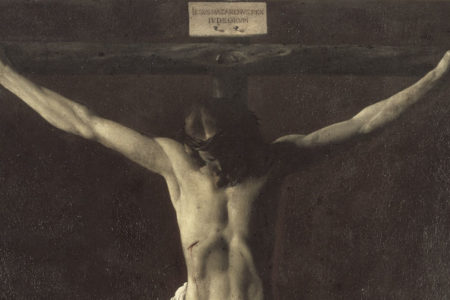The Disobedient Prophet
Jonah 1:1–3
The book of Jonah is probably the best known of all the Minor Prophets. What child has not heard the story of Jonah who was swallowed by a huge fish? The prophet’s story covers only four chapters (48 verses) and is fascinating to tell, but it is ironic and pathetic at the same time.
Throughout the centuries, critics have viciously ridiculed Jonah’s authenticity, considering the book to be mere myth, legend, or—at best—an allegory without any historical reliability. Their positions cannot be validated for a number of reasons. First, ancient Judaism accepted Jonah as truth and included it as one of the canonical books within the Jewish Scriptures. Josephus, the first-century Jewish historian, also accepted the book as part of the Scriptures.
Second, Jonah contains no historical inaccuracies. Third, Jesus the Messiah accepted the historicity of Jonah’s prophecy as a divine revelation from God (Mt. 12:39–41).
Jonah differs from other prophetic books in that it does not predict future events but provides an autobiographical narrative of the prophet’s commission to take God’s message to Nineveh. Keep in mind that a prophet spoke for God by bringing a message God wanted people to hear, as well as being someone who foretold future events.
Although Jonah is considered the focus of the book bearing his name, in a real sense, God’s dealings with Nineveh—and especially with the prophet Jonah—are the book’s true focus. God has the first and final word and speaks throughout the book, as we’ll see later (1:1–2; 4:10–11).
The message of Jonah centers on God’s love and grace as extended to cruel, heathen Gentiles with the intent that they might repent. Likewise, there is a corresponding message to Israel as well. Because Israel had received a revelation of the true and living God, it was to manifest this truth to a pagan, idolatrous world.
The book also teaches that, despite Jonah’s unwillingness to proclaim the Lord’s message in Nineveh, the Lord brought His purposes to fruition. The fact that pagans received God’s message and repented of their sin was a stinging rebuke to the sinful nation of Israel, for the Israelites shunned God’s call to repentance through His prophets. Furthermore, Jonah’s disobedience to God’s commission and his callous indifference toward taking God’s love and grace to Nineveh symbolized Israel’s indifference to the idolatrous condition of other nations.
Jonah’s Commission Declared
The book of Jonah opens with the verse, “Now the word of the Lᴏʀᴅ came to Jonah the son of Amittai, saying.” The conjunction now (Hebrew, “and”) is an ordinary method of connecting a book with the one preceding it.
Nowhere is Jonah mentioned as writing the book bearing his name. When the prophet is mentioned, it is always in the third person, causing some critics to believe that Jonah is not the author. However, other prophets, such as Moses, Isaiah, and Daniel, often mentioned themselves in the third person. No internal or external evidence would lead readers to believe that Jonah did not pen this prophecy.
Jonah means “dove” in Hebrew, but Jonah’s temperament was more hawkish than dovish. He is called the “son of Amittai,” whose name means “truth.” Jonah is mentioned in 2 Kings 14:25 as a prophet from Gath Hepher, a city of Zebulun approximately 12 miles west of the Sea of Galilee and three miles northeast of Nazareth (Josh. 19:13). The prophet can be described as a narrow-minded, fiercely zealous patriot who jealously defended the name of his God and had no pity on Israel’s enemies, especially the Assyrians because of their indescribable cruelty to the nations they conquered. In fact, Jonah wanted to see them destroyed.1
Jonah ministered during the reign of Jeroboam II (793–753 B.C.), king of the northern kingdom of Israel; and it was during this 40-year period that he wrote his prophecy.
Prior to Jeroboam, Assyria had become the supreme power in the Near East, extracting tribute from King Jehu of Israel (841–814 B.C.). But soon after, the powerful city-state faced internal problems and started to decline, giving Jeroboam an opportunity to expand and secure Israel’s northern border, thus ending years of conflict with Syria (2 Ki. 14:24–25). This gave Israel control of the trade routes, bringing great wealth to the land. But with thriving commerce came an indulgent lifestyle, exploitation of the poor, low moral standards, and the revival of idolatry that would soon bring about God’s wrath and destruction on the northern kingdom. It was in this context that God called Jonah to be a prophet to Nineveh.
After the days of Jonah, Assyria would revive from its temporary decline; and God would use the nation to destroy Israel in 722 B.C.
Jonah’s Commission Described
God said to Jonah, “Arise, go to Nineveh, that great city, and cry out against it; for their wickedness has come up before Me” (v. 2). When Nineveh was at the height of wickedness, God commanded Jonah to go there and proclaim His message.
Built by Nimrod, Nineveh lay on the east bank of the Tigris River, about 250 miles north of Babylon where the Tigris meets the Khosr River, opposite the site of present-day Mosul, Iraq (Gen. 10:8–11). Archaeologists believe it was originally built between 5000–4000 B.C.
A large city of nearly 600,000 people, Nineveh was the capital of Assyria, stretching 2.5 miles along the Tigris River and eight miles in circumference. The city had 15 gates. Its walls were 50 feet high and were thick enough to accommodate three chariots side by side. Greater Nineveh consisted of many cities in the shape of a parallelogram that covered an area 60 miles in circumference. Its influence in trade, culture, and politics extended from Egypt to the Persian Gulf.
Nineveh’s king, Ashurbanipal, boasted of his violence and shameful atrocities, which included tearing off the limbs of his victims, putting out their eyes, impaling them on poles, driving stakes through their chests and leaving them to die, boiling them in tar, ripping out their tongues, slitting open pregnant women, savagely raping women, and skinning people alive. Assyrians decapitated their enemies and piled the heads in pyramids as a monument to their victory. A conquered city was sacked and the survivors deported to Assyria as slaves.
Nineveh was notorious for its idolatry and immorality (Nah. 3:1, 19). Its temples were dedicated to the gods Nabu, Asshur, and Adad. The Ninevites also worshiped Ishtar, a goddess of love and war. Religious prostitution was a part of Assyrian worship fertility rites. Even the king of Assyria recognized they were a wicked people (Jon. 3:8).
God commanded Jonah, “Go to Nineveh,…cry out against it” (1:2). He was told to preach, “Yet forty days, and Nineveh shall be overthrown!” (3:4). Jonah was to speak against Nineveh’s sin with hope that the nation would turn to God. Its refusal to do so would seal its demise.
Jonah’s trip to Nineveh meant traveling 500 miles or so over rugged, desert terrain to preach to a people the prophet hated and wanted to see destroyed. Nineveh’s survival depended on Jonah’s faithfulness to God’s command and commission.
Jonah’s Commission Disobeyed
God had chosen and commissioned Jonah to carry a divine message to Nineveh. Jonah knew exactly what he was called to do. Either he could be obedient and go to Nineveh, or he could be disobedient and ignore God’s commission. Jonah chose the latter; he ran away from his divine call. Scripture says,
Jonah arose to flee to Tarshish from the presence of the Lᴏʀᴅ. He went down to Joppa, and found a ship going to Tarshish; so he paid the fare, and went down into it, to go with them to Tarshish from the presence of the Lᴏʀᴅ (v. 3).
Giving little thought to God’s commission, Jonah arose and fled to Tarshish, which was in the opposite direction of Nineveh. In order to find a ship bound for Tarshish, he had to travel about 60 miles, from Gath Hepher to Joppa. Tarshish was located 2,000 miles from Joppa in what is now southwestern Spain. In Jonah’s day, Tarshish was a Phoenician outpost, situated at the end of Western civilization. He paid the fare, boarded what was probably a large Phoenician vessel at Joppa (present-day Jaffa, not far from Tel Aviv), and headed away. He ran as far as he could go from the divine commission that the Lord had given him.
Scripture twice mentions that Jonah tried to do the impossible: flee “from the presence of the Lᴏʀᴅ” (v. 3). Jonah would have known David’s psalm and the revelation to Jeremiah that stated how impossible it is to flee from an omnipresent God (Ps. 139:7–12; Jer 23:24). Knowing this truth, why would he run?
Jonah fled out of a deep hatred for the ungodly Assyrians. Later in the book, Jonah explained: “I fled previously to Tarshish; for I know that You are a gracious and merciful God, slow to anger and abundant in lovingkindness, One who relents from doing harm” (4:2). Jonah knew that if God sent him to preach judgment on Nineveh, the Assyrians might repent. Then the Lord would have compassion on these wicked people and spare the city from destruction. Although not stated, Jonah might have reasoned that if he ran away, God would choose another prophet to preach to Nineveh.
Jonah’s reaction to God’s call is both remarkable and repugnant. Scripture records no true prophet who resigned from his position or ran from his divine call and commission as did Jonah. Jonah dropped out of fellowship with God.
There are lessons for us here. God did not intervene to prevent Jonah from paying the fare, boarding the vessel, and heading for Tarshish; He allowed the prophet to act on his decision.
God is no respecter of persons and extends salvation to all men, Jews and Gentiles alike. Furthermore, God is gracious and patient with even the most ungodly people in the world, providing them with opportunities to be saved before judgment falls.
God is also gracious and patient to His disobedient servants and will let them make decisions that go against His will. In addition, God uses the promise of judgment to bring people to repentance, and He is always ready to deliver the ungodly from judgment and use them to bring Himself glory and honor.
The fields of service that appear the most unpromising are sometimes the most fruitful. God’s servants must never harbor racial or cultural prejudice if they are to proclaim the message of salvation to the lost.
ENDNOTE
- Homer Hailey, A Commentary on the Minor Prophets (Grand Rapids: Baker Book House, 1972), 62.








This makes good reading I shall use some of it in my study of Jonah